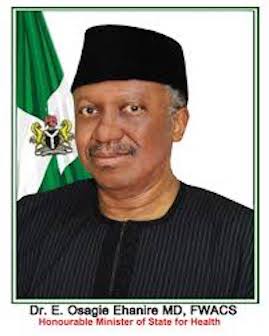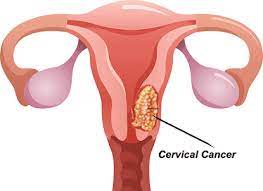Health
FG Disburses N101bn From Basic Healthcare Provision Fund – Official

The Federal Government has disbused N101billion to 7,600 primary health care facilities from the Basic Healcare Provision Fund (BHPF).
Dr Chris Isokpunwu, Secretary of the Ministerial Oversight committee, for BHCPF, in the Ministry of Health made this known in Abuja at a two-day retreat organised by the Health Sector Reform Coalition (HSRC) in Abuja.
The News Agency of Nigeria (NAN) reports that the retreat was supported by Africa Health Budget Network (AHBN) and other partners.
NAN reports that the BHCPF was designed as an earmarked Fund to be financed from not less than one per cent of the Consolidated Revenue Fund (CRF) of the Federal Government and other sources including donors’ contributions.
Isokpunwu said that the BHCPF gets 100 per cent release from the federal government.
”The funds have so far been disbursed to over 7, 600 primary health care facilities across the country.
“We received our release up to October . This accounts to about 83 per cent of the total funds that will be released this year.
“We have also made progress in the enrolment of the number of beneficiaries as well as in the disbursement of funds to over 7,600 primary health care facilities across the country.
“While we may not regard the enrolment of beneficiaries or the disbursement of funds to health facilities as an achievement, we believe that we begin to feel the impact of this funding.
“That is where the coalition comes in to ensure accountability of the fundis at all levels, supporting the government to block all leakages. We urge those who are involved in the pilfering of resources to stop,” he explained.
He also said that under the BHCPF , funds are made available to the Nigeria Centre for Disease Control (NCDC) to ensure that some funding gets to the states to promote the activities of the emergency operation centres.
The states, he stated, also needs to provide their counterpart to do that.
He, urged CSOs to continue to advocate for increased funding for health across all levels of government
“It is true that the budget office of the federation has said that the federal ministry of health keeps returning funds and there is no basis for asking for more. But we know that there is a lot that needs to be done with money in the health sector.
“The BHCPF, the creation of the National Health Act promises to be a game changer in the health sector if there is increased funding.
”We all agree that the primary health care facilities are the first point of call for all Nigerians. But why is it that with all the funding and resources that we are committing to primary health care, the results are not changing?
“Maternal mortality is still high, under-five mortality is still high and in fact, neonatal mortality refuses to move anywhere. Either it is stagnant or it continues to go up.
“We realise that the human resource for health in the primary healthcare system is poor, we also realise that the quality of services delivered in the primary health care is also poor.
“What can the coalition do to strengthen that system to deliver quality health services to Nigerians?
”We need to prepare for the next pandemic. It is a matter of time before we will be faced with another pandemic.
“Is our health system able to stand and face the next pandemic? The Coalition can set agenda for government and also push the government to continue to build infrastructure for such situation,” he questioned.
Earlier, the Chairman of the Board of Trustees of the HSRC, Dr Idris Muhammed, said that the retreat was meant to address some pertinent issues including finalising the development of an appropriate Charter for the coalition.
Muhammed said that the retreat would also develop a two-year costed workplan for the coalition.
“More importantly to enable us to develop sustainable funding sources and pathways for the coalition which we believe is very key if the coalition must pursue its objectives,” he said.
The retreat, he said, also aims to develop an agenda for the coalition’s activities especially, in keeping with the Nigeria Health Sector Reform initiative.
NAN reports that BHCPF) was established under section 11 of the National Health Act as a catalytic funding to improve access to primary health care.
The BHCPF is a federal and state funded initiative,it is a component of the National Health Act of 2014, which called for better investment within the health sector. It was signed into the 2019 fiscal budget by President Muhammadu Buhari in 2018.
BHCPF will provide free minimum basic healthcare to the poorest and most vulnerable Nigerians through accredited Primary Health Centres (PHCs) in each of the 36 states and federal capital territory. (NAN)
Health
Experts Seek Unified Action against Cervical Cancer

Torough David, Abuja
Stakeholders across health sectors have called for urgent, coordinated investment in prevention, equitable HPV vaccine access and harmonized health data to accelerate progress towards elimination of cervical cancer across Africa.
They made the call on Wednesday, during a panel session with the Theme ”Accelerating Cervical Cancer Elimination in Nigeria, From Policy to Practice”.
Head of Division, Maternal, Newborn, Child and Adolescent Health, Africa CDC, Dr Fidele Ngabo Gaga, highlighted its efforts to harmonise and aggregate health data across all 55 African Union (AU) Member States.
“We are developing a continent-wide data-sharing agreement and centralised repository to support data upstreaming and policy development.
“The goal is to present unified data at AU Summits, helping countries make evidence-based decisions,” Gaga said:
Prof. Imran Morhason-Bello, a leading gynaecologic oncologist from the University College Hospital, Ibadan, made a compelling financial case for prioritising prevention over treatment.
“Screening just between 2023 and 2027 will cost Nigeria N351 billion.
“But treating 10,000 women with invasive cervical cancer from 2027 to 2030 could cost us N1.4 trillion. Prevention is not only more humane, it is far more cost-effective,” he said.
Morhason-Bello also addressed innovations such as self-sampling for HPV testing, already being implemented in Nigeria through implementation science.
“Women receive a self-sampling kit, return it the same day, and positive results are treated before noon.
“It is happening in markets and schools. It is not a pilot, it is real.
“We have even developed a mobile app (available in multiple languages and offline) to guide women through the self-sampling process, increasing accessibility in low-resource settings,” he said.
External Affairs Director for MSD, Sub-Saharan Africa, Vuyo Mjekula, addressed one of the most common myths around the HPV vaccine rollout.
“Let me be clear, there is no shortage of HPV vaccines. If anyone tells you otherwise, call me directly. The real issue is equity and strategic allocation,” she said.
Mjekula recalled early proposals that included boys in HPV vaccination efforts, but warned that without careful planning, some countries would be left out entirely.
She called for one national policy that ensures equitable access to vaccines and services, especially for the most vulnerable girls.
“This is not about science alone. A dose costing N125,000 may be affordable to some, but to a woman in a rural village, it is like N10 million.
“If she must choose between survival and feeding her children, the answer is obvious,” she said.
She applauded Nigeria’s progress, noting that since the national rollout, the number of vaccinated girls across the continent has more than doubled, driven primarily by Nigeria’s leadership.
Mjekula also made an appeal for multi-sectoral collaboration, urging the involvement of private sector giants, from banks to telecoms and philanthropic foundations.
“Health is not just the government’s responsibility. We need to imagine beyond the healthcare we can afford with public funds and work toward the healthcare we want as a society,” she said.
She also called for a business case for investment in HPV prevention and cancer control, saying the task force must work hand-in-hand with all stakeholders.
“Let us go far together. If you want to go quickly, go alone. But if you want to go far, go together,” she said.
The symposium concluded with a call to integrate cancer screening into primary health care services.
It also called for the deployment of cost-effective technologies like self-sampling, addressing myths around vaccine shortages, and ensuring gender-sensitive, data-informed policies.
As Nigeria and the continent advance towards achieving the WHO 90-70-90 cervical cancer elimination targets, the message from experts was clear: “Let us do big and let us do it together”.
Health
89% of Infants Vaccinated Globally in 2024, WHO, UNICEF Warn of Risks

The United Nations agencies have reported that in 2024, approximately 89 per cent of infants worldwide, about 115 million children, received at least one dose of the diphtheria, tetanus, and pertussis (DTP) vaccine.This update comes from new national immunisation coverage data released on July 14 by the World Health Organisation (WHO) and the United Nations Children’s Fund (UNICEF).
Compared to 2023, an additional 171,000 children received at least one vaccine dose, and one million more completed the full three-dose DTP series. While these gains are modest, they reflect ongoing global efforts to protect children in spite of rising challenges.However, nearly 20 million infants still missed at least one DTP vaccine dose in 2024, including 14.3 million “zero-dose” children who never received any vaccine.This figure exceeds the 2024 target by four million, putting global immunisation goals outlined in the Immunisation Agenda 2030 at risk.WHO Director-General Dr Tedros Ghebreyesus emphasised the life-saving power of vaccines, stating, “It’s encouraging to see an increase in children vaccinated, but we still have much work to do. “Cuts in aid and vaccine misinformation threaten to reverse decades of progress.”He highlighted factors contributing to under-vaccination, including limited healthcare access, supply disruptions, conflict, and misinformation.“Data from 195 countries show 131 have consistently reached at least 90 per cent coverage with the first DTP dose since 2019. Yet, progress is stalling in 47 countries, with 22 nations seeing declines after previously meeting this target.”Tedros warned that conflict and humanitarian crises significantly undermined vaccination efforts.“A quarter of the world’s infants live in 26 fragile or conflict-affected countries, which account for half of all unvaccinated children globally.“In these areas, unvaccinated children rose from 3.6 million in 2019 to 5.4 million in 2024, highlighting an urgent need for integrated immunisation in humanitarian responses.“Immunisation coverage in 57 low-income countries supported by Gavi, the Vaccine Alliance, improved in 2024, reducing the number of under-vaccinated children by about 650,000.“Yet, some upper-middle- and high-income countries face early signs of declining coverage, which increases the risk of disease outbreaks.”UNICEF Executive Director Catherine Russell welcomed the progress but warned millions of children remained vulnerable to preventable diseases.She called for urgent action to overcome barriers such as shrinking health budgets, fragile systems, misinformation, and conflict-related access issues.Russell noted encouraging expansions in vaccines against HPV, meningitis, pneumococcal disease, polio, and rotavirus.“Global HPV vaccine coverage among eligible adolescent girls rose from 17 per cent in 2019 to 31 per cent in 2024, although it remains far below the 90 per cent target set for 2030.”Gavi CEO Dr Sania Nishtar added that while lower-income countries protected more children than ever, population growth, fragility, and conflict continued to hamper equity in vaccination efforts.She highlighted improvements in measles coverage but cautioned that it still fell short of the 95 per cent threshold required to prevent outbreaks.“Measles outbreaks nearly doubled from 33 countries in 2022 to 60 in 2024.”Nishtar stressed that funding shortfalls, instability, and rising misinformation threaten to stall or reverse progress, risking increased deaths from vaccine-preventable diseases.WHO and UNICEF called on governments and partners to close funding gaps for Gavi’s 2026–2030 strategic cycle to protect millions of children.They also urged strengthening immunisation efforts in conflict-affected and fragile settings, and prioritising locally led strategies and increased domestic investment in primary healthcare systems.Additionally, the agencies emphasised the need to counter vaccine misinformation through evidence-based campaigns.They also called for greater investment in robust data collection and disease surveillance systems to guide effective immunisation programmes. (NAN)Health
Nigeria Records 145 Lassa Fever Deaths, as Fatality Rate Increases

Nigeria has recorded 145 deaths from Lassa fever as of 2025 Epidemiological Week 25, with a case fatality rate (CFR) of 18.6 percent.
The Nigeria Centre for Disease Control and Prevention (NCDC), disclosed this in its latest report via its official website during the weekend in Abuja.
The NCDC said the week 25 figure marks an increase from 17.
6 percent reported for the same period in 2024.The report, which covered the week of June 16–22, revealed that 781 confirmed cases were reported out of 5,943 suspected cases across 20 states and 101 Local Government Areas (LGAs).
In the current reporting week, 10 new confirmed cases were reported in Ondo and Edo states with a slight increase from the eight cases recorded the previous week.
According to NCDC, 91 per cent of all confirmed cases in 2025 were reported from five states of Ondo (31%), Bauchi (24%), Edo (17%), Taraba (16%) and Ebonyi (3%).
It said that the disease continues to affect young adults predominantly, within the 21 to 30 age group most impacted. Males were slightly more affected, with a male-to-female ratio of 1:0.8.
The Nigerian public health agency, said that despite a decline in the overall number of suspected and confirmed cases compared to 2024, the rise in CFR is raising concerns among health experts.
The agency highlighted late presentation of cases, high treatment costs, and poor health-seeking behaviour as contributing factors to the increased fatality.
It said that no new infections among health workers were recorded in the reporting week, though 23 healthcare workers have been affected cumulatively this year.
The NCDC said it is currently in collaboration with partners, such as the World Health Organisation (WHO), the United States Centers for Disease Control and Prevention (US CDC), ALIMA, the Institute of Human Virology Nigeria (IHVN) and others.
The collaborations, it stated further, have intensified multi-sectoral response efforts to combat the spread of Lassa fever.
It said that, as part of these efforts, Integrate clinical trials are currently ongoing in Ondo State, with After Action Reviews (AARs) conducted in both Ondo and Ebonyi to evaluate the response to the outbreak.
The agency said that clinician sensitisation, community engagement activities and environmental response campaigns have been carried out in identified hotspot areas.
In addition, the NCDC said that it has deployed 10 national rapid response teams to various states, adopting a one health approach to disease control.
To further strengthen infection prevention and control (IPC), the agency launched an IPC e-learning platform and distributed updated Viral Hemorrhagic Fever (VHF) guidelines to health facilities across the country.
The agency said that other efforts also included active contact tracing, surveillance, media engagement and geospatial risk mapping, alongside regular webinars for clinicians and capacity-building sessions nationwide.
The NCDC identified key challenges including poor environmental sanitation and low community awareness, particularly in high-burden LGAs.
It also said that sustained efforts were needed to curb the fatality rate, ensure early detection, and improve public health outcomes.
The NCDC advised Nigerians to maintain proper hygiene, avoid contact with rodents, and seek medical help promptly when experiencing symptoms such as fever, sore throat, vomiting, or unexplained bleeding.
Lassa fever, which was first identified in 1969 in Lassa, Borno, is endemic in Nigeria, with outbreaks occurring annually.
Symptoms range from mild fever and joint pain to severe bleeding from the nose, mouth, and gastrointestinal tract.
The disease is fatal in about 20 percent of cases, particularly when treatment is delayed.
Across West Africa, hundreds of thousands are infected annually, experiencing symptoms such as fever, vomiting and, in severe cases, bleeding.
One of the most troubling complications is hearing loss, which affects about 25 percent of survivors.
The estimated fatality rate is one per cent, but during outbreaks, mortality can rise significantly, particularly among pregnant women and healthcare workers.
In spite of its significant health impact, Lassa fever remains one of the most neglected diseases, with limited resources allocated to its preventions and treatments.
Currently, no licensed vaccines exist, although around 20 candidates are in development, with the most advanced in Phase IIa clinical trials.


















